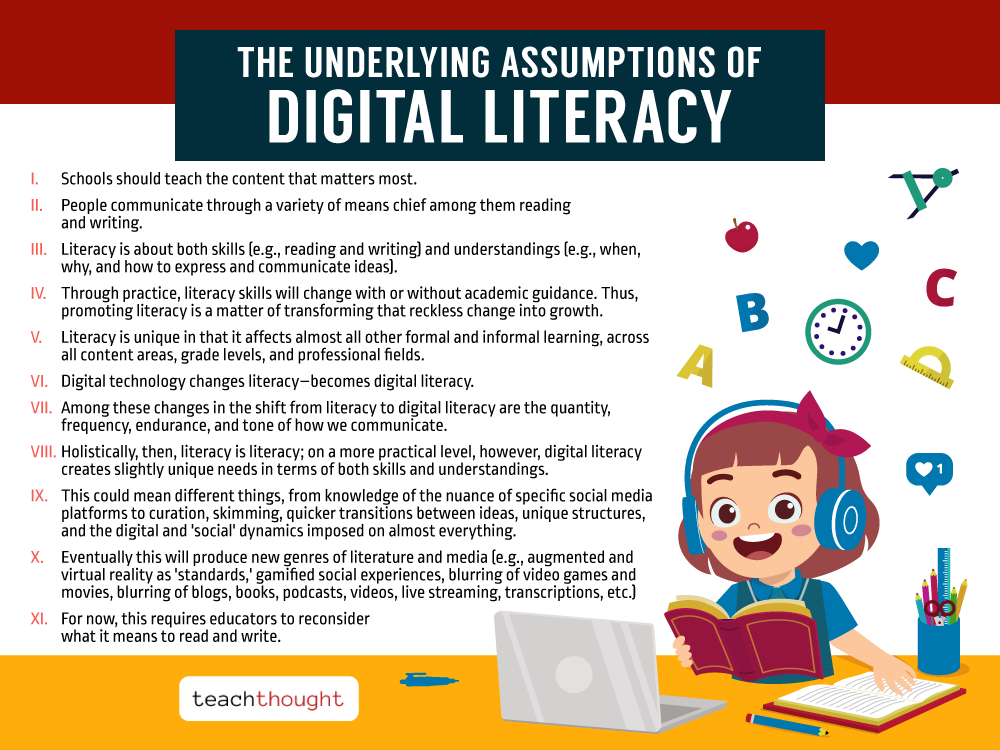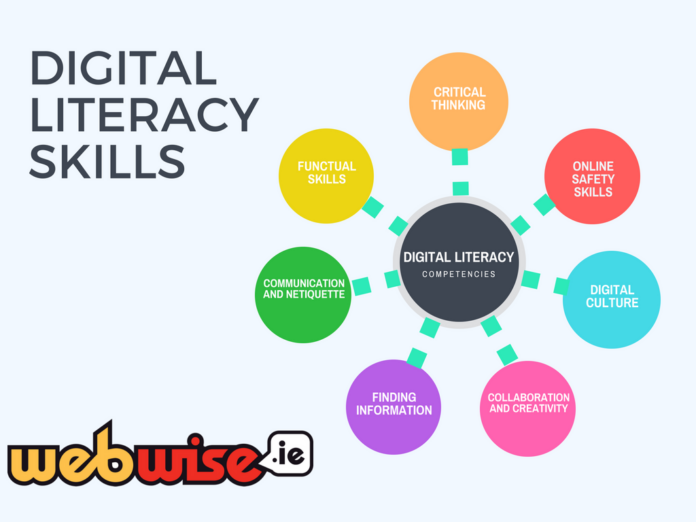The world is constantly evolving, and with the rapid advancement of technology, we have entered into a digital age where traditional definitions of literacy are no longer sufficient. In this new landscape, it has become crucial for individuals to possess digital literacy skills in order to thrive and succeed. Digital literacy encompasses much more than just reading and writing; it includes the ability to navigate and effectively utilize various digital technologies. In this article, we will delve into the multifaceted world of digital literacy, exploring its definition, importance, challenges, and strategies for improving it.
Importance of Keywords in Digital Context
In today’s digital era, keywords play a crucial role in how we access and process information. Keywords are specific words or phrases that are used to classify and organize content, making it easier to search and find relevant information. They allow us to narrow down our search and find exactly what we are looking for amidst the vast amount of online information available.
Keywords have become even more significant with the rise of search engines, which use algorithms to rank websites based on their relevance to a particular keyword or phrase. This has led to the concept of Search Engine Optimization (SEO), where website owners strive to optimize their content with relevant keywords to rank higher in search engine results. Therefore, having a good understanding of keywords and their usage is essential in navigating the digital landscape.
Types of Keywords (Long-tail, Short-tail, LSI)
There are three main types of keywords: long-tail, short-tail, and Latent Semantic Indexing (LSI) keywords. Each type serves a different purpose and can be used in different ways to improve search visibility.
- Long-tail keywords: These are longer and more specific phrases that typically have lower search volume but higher conversion rates. For example, “best vegetarian restaurants in New York City” is a long-tail keyword, as compared to the shorter and more general “vegetarian restaurants.” Long-tail keywords are essential for targeting a specific audience and can be highly effective in SEO.
- Short-tail keywords: These are shorter, broader, and more general words or phrases that have higher search volume but lower conversion rates. For instance, “restaurants” is a short-tail keyword. While these keywords may attract more traffic, they may not necessarily lead to conversions as they do not cater to a specific audience.
- LSI keywords: These are words and phrases related to a particular topic or keyword. They help search engines understand the context of a webpage’s content and improve its relevance in search results. For example, if the main keyword is “digital marketing,” LSI keywords could include “SEO,” “social media,” “content marketing,” etc.
Role of Keywords in Search Engine Optimization (SEO)
As mentioned earlier, keywords play a significant role in SEO. When used correctly and strategically, they can improve a website’s search ranking and increase organic traffic. However, using too many keywords, also known as keyword stuffing, can harm a website’s ranking as search engines consider it as spam. Therefore, it is crucial to use keywords in a natural and relevant way, without overusing them.
Additionally, search engines take into account factors such as keyword placement, density, and relevancy when ranking websites. It is important to use keywords in titles, headings, meta descriptions, and throughout the content in a balanced manner. This helps search engines understand the content’s context and improves its visibility in search results.
Analyzing Keyword Trends and Tools

In order to effectively use keywords, it is essential to analyze their trends and keep track of their performance. This can be done through various online tools, such as Google Trends, SEMrush, Ahrefs, and Moz. These tools provide insights into keyword search volume, competition, and potential alternatives.
Google Trends, for example, shows the popularity of a keyword over time, allowing website owners to understand its current relevance and potential future trends. SEMrush gives an overview of a website’s keyword ranking and performance, while Ahrefs provides backlink analysis and keyword research. Moz offers a comprehensive set of tools for keyword research, link building, and rank tracking.
By regularly analyzing keyword trends and using these tools, website owners can stay updated and make informed decisions about their content and SEO strategies.
Challenges in Keyword Literacy
One of the main challenges in keyword literacy is staying up-to-date with the ever-changing digital landscape. As technology advances, new keywords and trends emerge, making it essential to continuously monitor and adjust keyword usage.
Moreover, with the rise of voice search and artificial intelligence, the way people search for information is also changing. This means that traditional keyword research methods may not be as effective, and website owners need to keep up with these changes to ensure their content remains visible and relevant.
Another challenge is competition. With more and more businesses going digital, the online space has become highly competitive, making it challenging to rank for certain keywords. This means having to constantly improve and adapt keyword strategies to stay ahead of the competition.
Strategies for Improving Keyword Literacy
Despite the challenges, there are various strategies that can help improve keyword literacy and optimize content for search engines. These include:
- Conducting thorough keyword research: This involves identifying relevant keywords and phrases that have high search volume and low competition. It is important to use a mix of long-tail and short-tail keywords, along with LSI keywords, to create a well-rounded strategy.
- Utilizing local keywords: For businesses with a physical location, using local keywords can help target a specific audience in a particular area. This includes mentioning the city or region in the keyword, such as “best coffee shops in London” or “SEO services in Los Angeles.”
- Incorporating keywords naturally: As mentioned earlier, keyword stuffing can harm a website’s ranking. Therefore, it is crucial to incorporate keywords in a natural and relevant way. This means using them in titles, headings, and throughout the content without overusing them.
- Creating high-quality and relevant content: Search engines value high-quality and relevant content that provides value to the reader. Therefore, it is important to create content that addresses the needs and interests of the target audience while incorporating relevant keywords.
Case Studies on Effective Keyword Usage

Several businesses have successfully utilized keywords to improve their online presence and visibility. One such example is Moz, a software company that provides SEO tools and resources. By optimizing their website’s content with relevant keywords and continuously monitoring keyword trends, Moz has managed to rank high in search results and attract a large number of visitors organically.
Another case study is that of local coffee shop “The Daily Grind,” which used a combination of local and long-tail keywords to target customers in their area. This resulted in an increase in website traffic and ultimately led to more customers visiting the shop.
These examples show how effective keyword usage can help businesses and websites improve their online presence and reach their target audience effectively.
Conclusion and Future Outlook
In conclusion, digital literacy and keyword literacy are crucial in today’s digital age. With technology constantly evolving and the digital landscape becoming increasingly competitive, it is essential for individuals and businesses to possess a good understanding of keywords and their usage. By staying updated with changing trends and utilizing effective strategies, one can navigate the digital landscape and stand out among the competition. As technology continues to advance, the importance of keyword literacy will only increase, making it essential to continuously improve and adapt keyword strategies for success.
